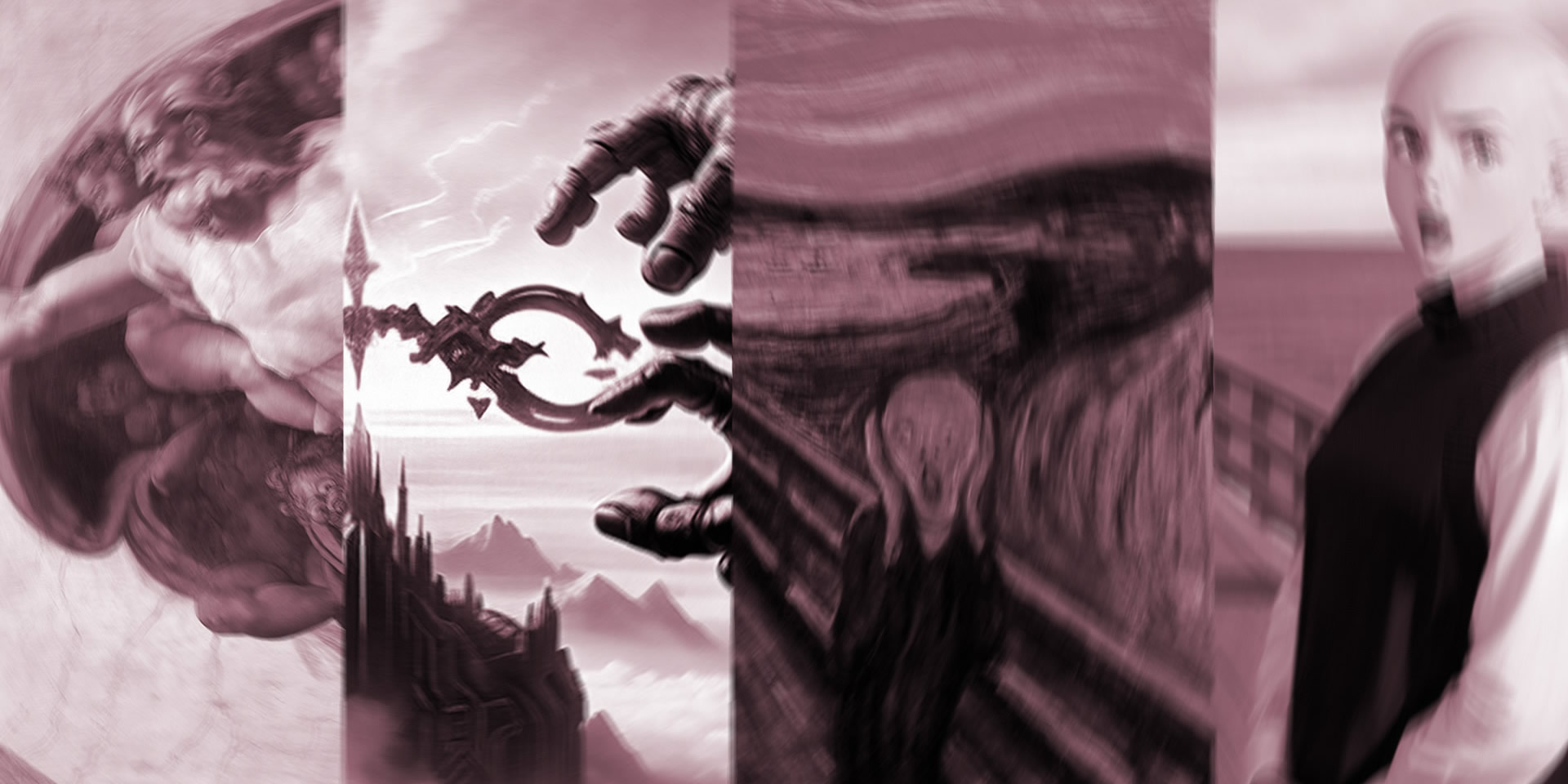We’ve heard the idea that AI art, if you want to call it art at all, democratizes art itself.
That got us thinking, does it?
When we thought about the democratization of art, we considered the tools, like the home recording revolution in the 80s and 90s. Using AI, on the other hand, takes away the one and only thing each and every artist could have put into their art, regardless of their financial or social position: effort.
Now imagine Michelangelo sitting in the Sistine Chapel with a laptop and “prompting” the Creation of Adam. Or pick your favorite piece of art and think of it as a merely random result of any prompt. Let’s say Edward Munch’s Scream, an image of a deeply troubled person, maybe in mental trauma or panic and fear. And you learn about Munch’s own mental issues, and maybe you’ll find your own feelings represented in that image. Now, as your eyes move down, you read the plaque and it reads, “Bold Karen at a pier is shocked as a gay couple walks by, oil painting, expressionist, trending on ArtStation, masterpiece.”
Art by an AI is arbitrary; it lacks depth and meaning. When you’re an artist, you’ll try to find those short moments of deep fulfillment when your intention and artistry come together, like in the Creation of Adam. There’s a brief moment of disbelief when you hear, see, or touch your work for the first time, after it’s done. Was this really me? You can’t get this feeling for free. Tears and failure shape what may eventually become art someday, not putting some words in a textbox and hoping for the best.
And it doesn’t only ruin it for the artists; it ruins it for the audience too. When we were young, certain artists molded us into the people we are now. Books, songs, and even movies broadened our views, ignited thoughts, and encouraged curiosity in our heads. These pieces were so influential because they were made by humans, like us, human beings as happy, fearful, sad, and devastated as we were at times. Now, imagine we take all this away from future generations, and no, a prompt can’t do the same.
The good thing is, you don’t have to use AI. You can write songs, carve stones, or paint images the way you prefer. And for the artists’ pride, this may well be enough. If it weren’t for the tiny detail of making a living…
Let’s put aside commercial music because people can decide for themselves here, and maybe they will feel the urge to listen to human artists.
But what about all the other fields of commercial art? Music in movies, advertisements, games. All kinds of design, from concept art to character design, rigging, scene modeling, matte painting, and so on. And if we really mess up, the writing as well.
We aren’t against the technology in general, but let us use it to do stupid and repetitive work, and maybe not to destroy something beautiful again, like we did with so many other developments.
No need for composers, artists, mix engineers, musicians, and so many other trades anymore. What some may call democratization is more like extinction. Extinction of something so special, so unique to our kind, something so needless but still so important: our way to immortalize a feeling, a moment, or a thought—art.
